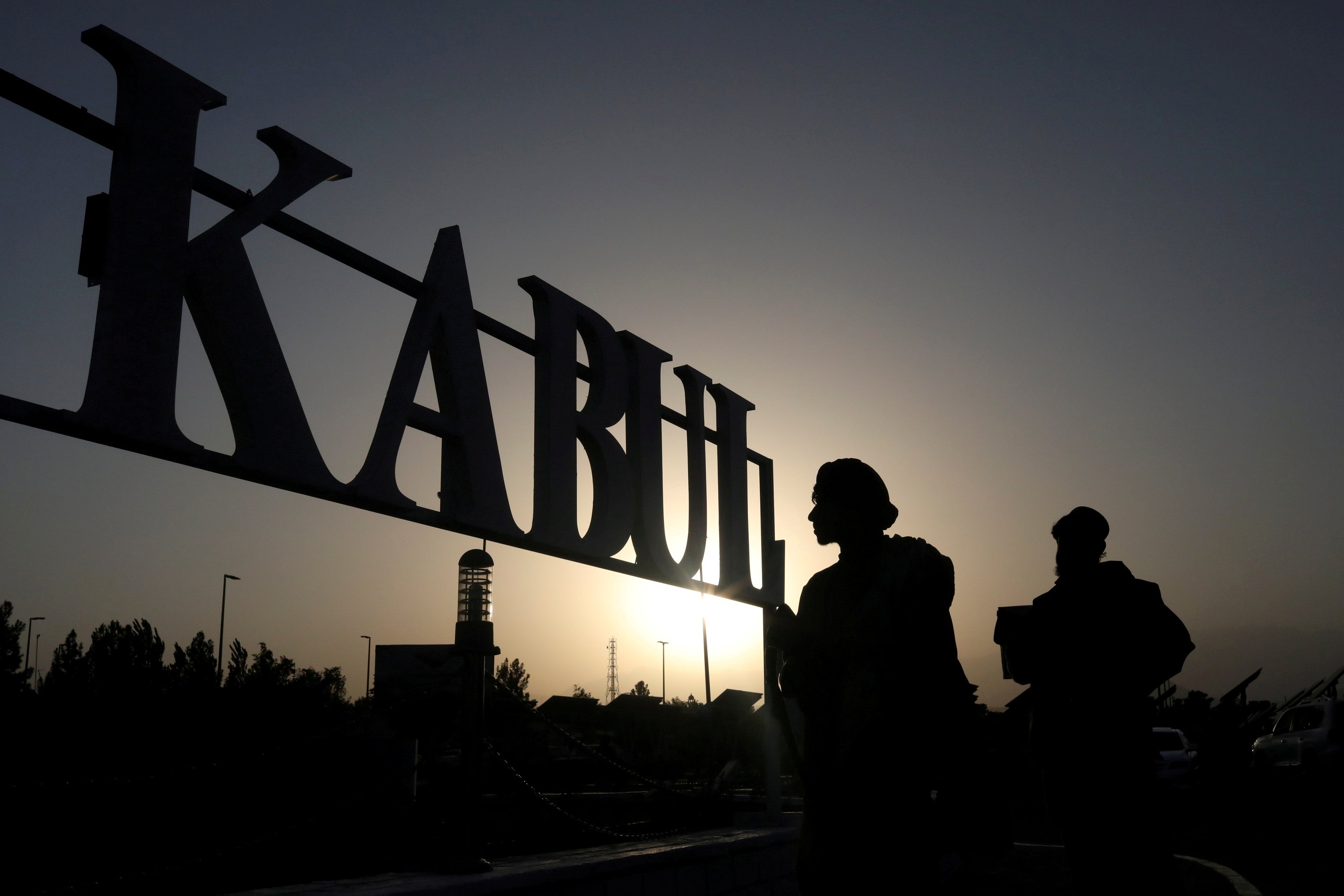UAE holds talks with Taliban to run Kabul airport, foreign diplomats say
The Emiratis are keen to counter Qatar’s diplomatic clout in Afghanistan

Your support helps us to tell the story
From reproductive rights to climate change to Big Tech, The Independent is on the ground when the story is developing. Whether it's investigating the financials of Elon Musk's pro-Trump PAC or producing our latest documentary, 'The A Word', which shines a light on the American women fighting for reproductive rights, we know how important it is to parse out the facts from the messaging.
At such a critical moment in US history, we need reporters on the ground. Your donation allows us to keep sending journalists to speak to both sides of the story.
The Independent is trusted by Americans across the entire political spectrum. And unlike many other quality news outlets, we choose not to lock Americans out of our reporting and analysis with paywalls. We believe quality journalism should be available to everyone, paid for by those who can afford it.
Your support makes all the difference.The United Arab Emirates has held talks with the Taliban to run Kabul airport, going up against Gulf rival Qatar in a diplomatic tussle for influence with Afghanistan’s new rulers, according to four sources with knowledge of the matter.
UAE officials have held a series of discussions with the group in recent weeks to discuss operating the airport that serves as landlocked Afghanistan’s main air link to the world, the foreign diplomats based in the Gulf region told Reuters.
The talks demonstrate how countries are seeking to assert their influence in Taliban-ruled Afghanistan even as the hardline Islamist group largely remains an international pariah and its government not formally recognised by any country.
The Emiratis are keen to counter diplomatic clout enjoyed there by Qatar, according to the sources who declined to be name due to the sensitivity of the matter.
The Qataris have been helping run the Hamid Karzai International Airport along with Turkey after playing a major role in evacuation efforts following the chaotic U.S. withdrawal in August, and have said they are willing to take over the operations.
Yet the Taliban has not yet formalised an arrangement with Qatar, the four diplomats said.
A senior Emirati foreign ministry official said the UAE, which previously ran Kabul airport during the U.S.-backed Afghan republic, “remains committed to continuing to assist in operating” it to ensure humanitarian access and safe passage.
Abu Dhabi also aided recent evacuation efforts.
The Taliban and Qatari authorities did not respond to requests for comment.
Two of the diplomats said the Taliban has also sought financial assistance from the UAE, though they added it was not clear if this was related to the airport discussions.
The Emirati foreign ministry official, Salem Al Zaabi, director of international security cooperation, did not respond to a question on whether the UAE was considering providing financial help to the Taliban.
One key issue that’s still to be resolved between the Taliban and potential airport operators is who would provide security at the site, the four diplomats said. The Taliban say they do not want foreign forces in the country following their return to power after two decades of war.
Still, Qatari special forces are presently providing security within the airport’s perimeter, the diplomats added, while Taliban special forces were patrolling areas outside.
So far countries have been reluctant to formally recognise the Taliban’s government, accusing the group of backtracking on pledges to uphold the rights of women and minorities.
Yet Qatari officials have urged greater international engagement with the Taliban to prevent impoverished Afghanistan from falling into a humanitarian crisis. Gulf states have also voiced concern that the U.S. withdrawal would allow al Qaeda to regain a foothold in Afghanistan.
While there is little commercial benefit for any operator, the airport would provide a much-needed source of intelligence on movements in and out of the country, according to the four diplomats, who said that since the withdrawal many countries have lacked real-time information.
Qatar and the UAE have had strained relations for years as they competed for regional influence.
The UAE, Saudi Arabia and their allies boycotted Qatar for over three years, cutting off political, trade and transport ties, accusing Doha of supporting terrorism - a charge that it denies. The dispute was resolved in January this year.
Qatar has long been the gateway to the Taliban, with Doha hosting the group’s political office since 2013 and negotiations with the U.S. in early 2020 that led to the withdrawal.
Last week, Qatari officials strengthened their position by signing an accord to represent American diplomatic interests in Afghanistan.
The UAE has maintained ties with the Taliban too, according to two of the diplomats. They said the country had been home to some members of the group in recent years, including Sher Mohammad Abbas Stanikzai, who they added lived in the Sharjah emirate with his family from at least 2013. Stanikzai is now deputy foreign minister in the Taliban administration.
Al Zaabi did not respond to questions on the UAE’s relationship with Stanikzai. The Taliban did not immediately respond to queries on Stanikzai living in the UAE.
The Taliban said this month that the UAE had reopened its embassy in Kabul. The UAE has not commented.
Reuters
Join our commenting forum
Join thought-provoking conversations, follow other Independent readers and see their replies
Comments